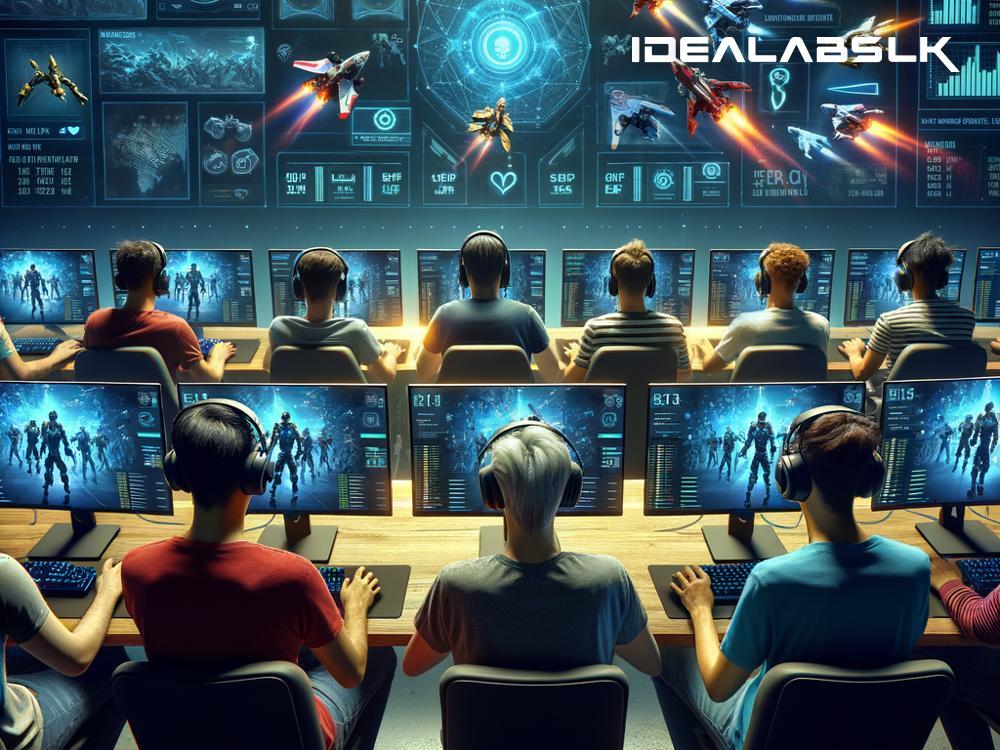The Future of AI in Esports: How Machine Learning Will Enhance Competitive Gaming in 2025
Esports has been booming, with millions of fans tuning in to watch professional gamers battle it out in games like Fortnite, League of Legends, and many others. This competitive gaming world has already started to get a taste of artificial intelligence (AI) and machine learning (ML), but by 2025, these technologies are set to take esports to a whole new level. Let's dive into how AI and machine learning are about to change the game, quite literally.
Smarter Game Development
First things first, AI is reshaping how video games are made. Developers are using machine learning to create more intelligent and adaptable in-game characters. These NPCs (non-player characters) can learn from players' actions, making each game unique and challenging. By 2025, expect games to not just have smart characters but also evolving storylines and environments that change based on how you play. This will make esports even more unpredictable and exciting, both for players and viewers.
Personalized Coaching for Players
Imagine having a personal coach who knows your gaming style inside out and can give you tips tailored specifically for you. This is where AI-powered coaching comes into play. Using data from your past games, these AI coaches can highlight your strengths and pinpoint your weaknesses, offering advice on how to improve. By 2025, this technology will be more sophisticated, providing real-time suggestions during matches and helping players to make split-second decisions that could lead to victory.
Enhanced Viewing Experiences
For those who love watching esports, AI is set to revolutionize the viewing experience. Using machine learning, broadcasters can provide personalized streams that focus on the aspects of the game you care most about. Want to follow a specific player or see more of the map? AI will adjust the stream to suit your preferences. Furthermore, AI can generate instant replays and highlight important moments, ensuring you never miss out on the action. By 2025, we could even see virtual reality (VR) broadcasts that put you right in the middle of the game.
Fair Play and Cheating Prevention
One of the big challenges in esports is ensuring fair play. Cheating can ruin the experience for everyone involved. Thankfully, AI and machine learning are becoming powerful tools in the fight against unfair practices. By analyzing gameplay data, these systems can detect anomalies that suggest cheating, helping to keep competitions clean. As these technologies evolve, expect esports tournaments to become more transparent and fair, which is essential for the future of competitive gaming.
AI as Competitors
Here's where things get really interesting: AI-controlled teams entering the fray. We've already seen AI systems beat human players in games like Chess and Go, and they're getting better at more complex video games. By 2025, we might see AI teams competing against humans in major esports tournaments. This isn't just about proving who's better; it's also a fantastic way for players to test their skills and strategies against the most unbiased opponent there is - a machine.
Training and Strategy Development
AI isn't just for competing; it's also a valuable tool for training. Teams can use AI to simulate matches against upcoming opponents, providing a unique opportunity to practice without giving away their strategies. Machine learning algorithms can analyze opponents' past games to predict their moves, helping players develop counter-strategies. By 2025, this kind of preparation will likely be a standard part of any professional team's toolbox.
The Broader Implications
With all these advancements, the future of esports in 2025 looks incredibly bright. But it's not just about making games more exciting or fair; it's also about the implications for AI across various sectors. The technologies developed for esports can have applications in areas like education, where personalized learning could become the norm, or in business, where AI coaches could train employees.
In Conclusion
The integration of AI and machine learning into esports is poised to not only enhance the way we play and watch games but also transform the very fabric of competitive gaming. By 2025, these technologies will offer a more personalized, fair, and immersive esports experience while also pushing the boundaries of what AI can achieve. For fans, players, and developers alike, the future of esports holds much promise and excitement, powered by the incredible potential of AI and machine learning.

